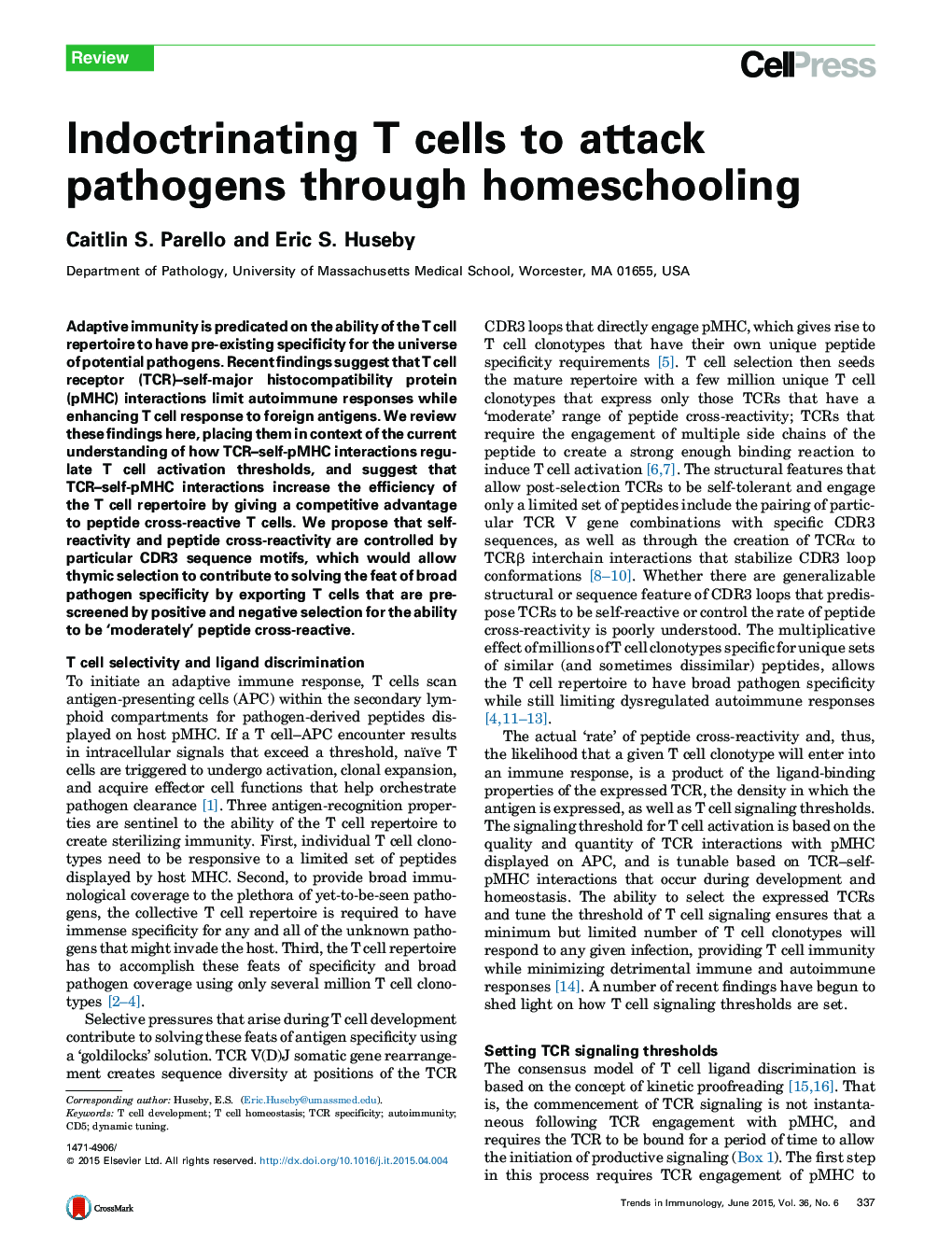| Article ID | Journal | Published Year | Pages | File Type |
|---|---|---|---|---|
| 4359836 | Trends in Immunology | 2015 | 7 Pages |
•T cell interactions with self-pMHC tune antigen receptor signaling thresholds.•Desensitization of TCR signaling in mature T cells creates an autoimmunity buffer.•T cell homeostatic signals ready T cells to respond to foreign pathogens.•Competition during homeostasis may promote T cell peptide cross-reactivity.
Adaptive immunity is predicated on the ability of the T cell repertoire to have pre-existing specificity for the universe of potential pathogens. Recent findings suggest that T cell receptor (TCR)–self-major histocompatibility protein (pMHC) interactions limit autoimmune responses while enhancing T cell response to foreign antigens. We review these findings here, placing them in context of the current understanding of how TCR–self-pMHC interactions regulate T cell activation thresholds, and suggest that TCR–self-pMHC interactions increase the efficiency of the T cell repertoire by giving a competitive advantage to peptide cross-reactive T cells. We propose that self-reactivity and peptide cross-reactivity are controlled by particular CDR3 sequence motifs, which would allow thymic selection to contribute to solving the feat of broad pathogen specificity by exporting T cells that are pre-screened by positive and negative selection for the ability to be ‘moderately’ peptide cross-reactive.
